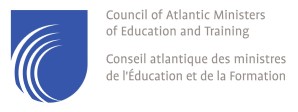
TOOLKIT FOR
WORKERS AND
WORK SEEKERS
Demonstrate financial management knowledge, skills and awareness necessary to navigate school, work, transitions and other life responsibilities.
You can demonstrate your financial literacy through:
- Understanding what is meant by financial literacy and its importance
- Recognizing that financial literacy is a lifelong endeavour
- Identifying the costs and funding sources associated with various education and career pathways
- Developing a personal financial plan to support the achievement of education, life and career goals
- Evaluating and setting short- and long-term financial goals to support making healthy financial decisions that lead to financial security (e.g., saving and investing money, debt financing and sources, contractual obligations)
- Knowing how to develop and manage a budget
- Knowing how to keep personal information safe and secure, to prevent and protect against fraud and financial abuse
- Maintaining financial records, as required, to assist with calculating, submitting and supporting reports (e.g., income tax, loan applications, requests for financial assistance)
Ever since learning a tough lesson from running into financial problems as a teenager, Alyssa has always been careful with her money. She makes good financial decisions, has savings and has a home with a manageable mortgage. Married for 15 years, with two children in high school, Alyssa is finally at the point where she isn’t worried about money.
Then her spouse is in a car accident and, although insurance will likely compensate them later, in the short-term expenses are high and it is unclear when, if ever, her spouse will be able to work again. Alyssa watches their savings account melt away. She makes an appointment with her financial advisor to discuss options for reducing monthly payments and restructuring their finances during this unexpected crisis.






